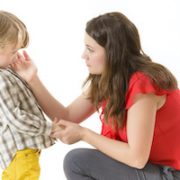Posts
Your Teen’s Pandemic Routine: Expectation V. Reality (why you and your teen feel exhausted from all this free time!)
/0 Comments/in Parenting, Teen /by MegghanCan your kiddo REALLY benefit from online therapy?…YES!
/0 Comments/in Online Therapy, Parenting, Play Therapy, Teen, Telehealth /by MegghanHow to STOP Sabotaging Your Relationships and START Listening
/0 Comments/in Highly Sensitive, Parenting, Teen /by MegghanA BIG reason why playtime should be a part of your child’s daily routine, even during a crisis
/0 Comments/in Highly Sensitive, Parenting, Play Therapy /by MegghanHow to help your HSC feel confident in making changes
/0 Comments/in Highly Sensitive, Parenting highly sensitive, parenting /by MegghanOftentimes parents don’t realize while they’re talking about their child’s behavior that particular words they chose to use had a deeper impact on their child’s self-confidence than they are aware. Semantics are important for HSCs, as they have such an expansive imagination. So, HSCs need specific support!
+Recognize what your goal is in that moment: to receive support/validation from a friend? To get your child to change their behavior?
+How can you do this by sticking to the facts, and using non-evaluative language?
Example: Your kid is playing with a sibling or friend, and starts complaining about not getting his way in the game. Change “stop being so whiny!” to: “seems like you had an idea about how that would go, but it isn’t working out”
When speaking to another adult, Change: “she’s such a whiner” to “Sometimes she has a hard time compromising, but we’re working on it”
Your friend will understand what you mean, and your child will feel respected as he/she is struggling.
If you’d like more support on how to parent your HSC effectively, read about our Parent Workshop series below:
https://thompsonchildtherapy.com/parenthscgroup/
It’s not coddling if you’re supporting their growth
/0 Comments/in Highly Sensitive, Parenting parenting /by MegghanWhy avoiding “coddling” isn’t the way to go…
When your child is overwhelmed, I want you to think of your child like a newborn, everything is intense to him/her in that moment.
Sights, sounds, bright lights, emotions, it all adds up, so they look away from you to have a lower stimulating environment.
After a few minutes, they come back and look again.
With Highly Sensitive Children, we need to help them recreate this for themselves.
We need to have them take quiet time before they give us any sign they’re overstimulated.
We are teaching them to develop the skills needed as adults that will help them curl up on the couch with a good book, go to bed early, leave a party when it gets too rowdy, etc… rather than feeling guilty that they can’t keep up, and pushing beyond their personal limits, only to burn out quicker.
If you need help finding that balance of supporting your child’s needs, while helping him/her grow into a balanced adult, read about our Parent Workshop below.
https://thompsonchildtherapy.com/parenthscgroup
Teach your kid to hug themselves, by first hugging yourself
/0 Comments/in Highly Sensitive, Parenting, Teen highly sensitive, parenting, Teens /by MegghanThe #1 Calm Down Strategy Most Parents Overlook
It seems counterintuitive, but the one of the first things I teach parents is how you can recognize and care for yourself before we work on addressing your child’s behavior. Parents often think “If I can just get my kid’s behavior under control, THEN I can finally read that book, or sign up for Zumba, or take that weekend away to golf.” The truth is, without the patience to manage those meltdowns, your child cannot successfully achieve that change you’re hunting.
And the fact is, you’re wondering if that trip will ever come for you if things keep going down this path. You’ve been trying all sorts of coping skills. You’re on the right track, part of preparing your kid for the world is teaching him/her when to take a break when they’re overwhelmed. (You know it’s not just about figuring out how to toughen up and accept the fact that there are bad things that happen in this world, move on, and get over it.)
Highly Sensitive kids are the catalyst for change in our society, and they can’t act on what subtleties they notice in the world without support in knowing when to retreat into calm.
The first step towards setting them up for success is modeling this for them, EVEN when it seems like you have NO TIME to do it given how many meltdowns they have each day!
Reach out to see what will help you regain peace in your home.
https://thompsonchildtherapy.com/contact/
Address
602 Center St. Suite 209
Mount Airy, MD 21771
301-710-9532










